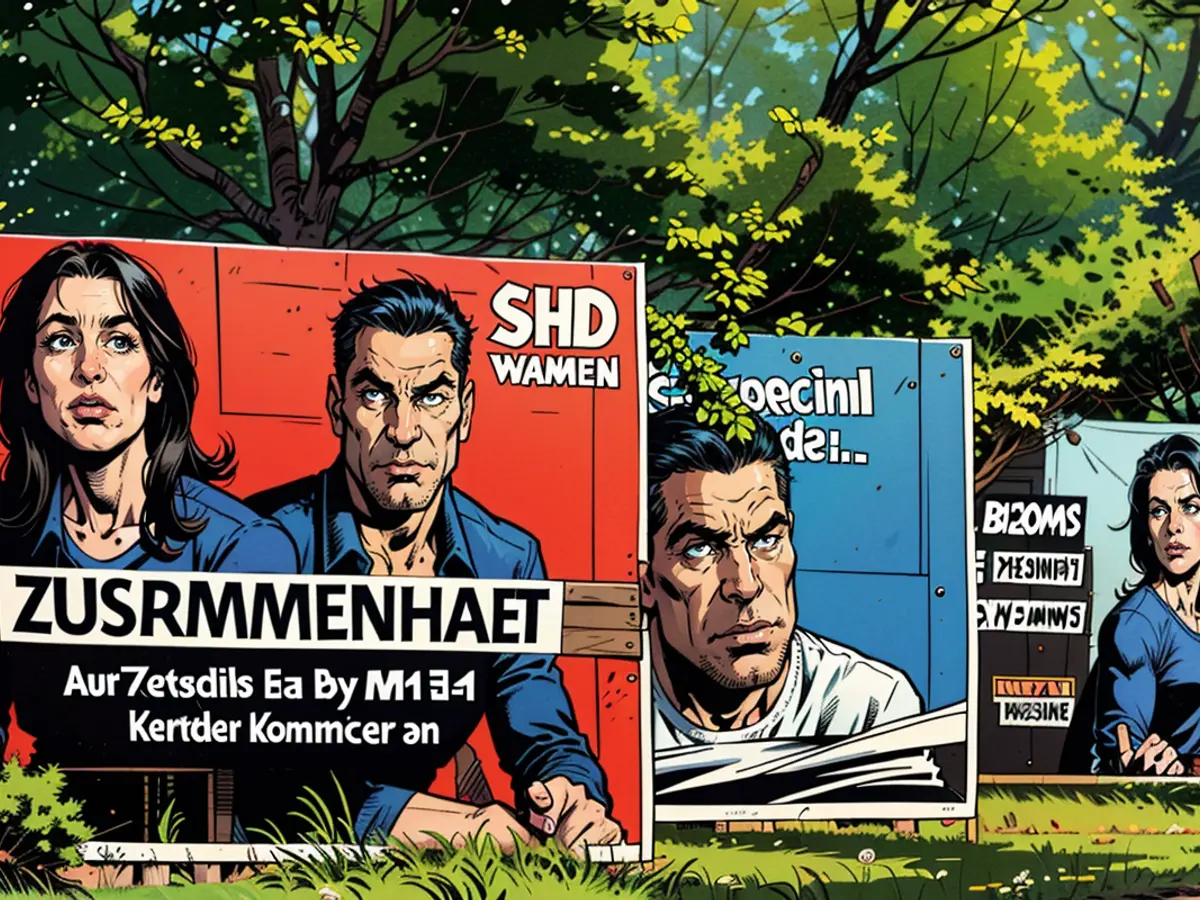With the election approaching, political parties debate European policies in German parliament.
The Green Party's leader, Ricarda Lang, views the peacekeeping efforts following World War II as a "miracle for Europe" that needs to be defended. She urges people to stand up for Europe, especially in the face of Russia's actions in Ukraine. Lang believes Europe must strengthen its security policies and protect its own people. Moreover, Lang is keen to emphasize the importance of climate change measures.
The SPD's Vice-President, Achim Post, has urged people to safeguard the achievements of democracy, freedom, and Europe. He mentioned the potential threats from both ends of the political spectrum, and emphasized the importance of maintaining peace, security, economic growth, and social cohesion.
Marie-Agnes Strack-Zimmermann, the FDP's lead candidate for the European Union, lauded the EU as the "greatest peace project" since the dawn of humanity. However, she also criticizes the EU for its "utter weaknesses," accusing the current policy of Commission President Ursula von der Leyen of being ineffective. Strack-Zimmermann proposed the establishment of a defense union.
Gunther Krichbaum, the EU's political spokesperson for the Union faction, criticized the "traffic light government" for weakening Germany's influence in the European Union. According to him, Germany is gradually becoming irrelevant within the EU, with Economics Minister Robert Habeck missing out on "crucial sessions" in Brussels. If Germany isn't participating in ministerial meetings, Krichbaum argued, German interests cannot be represented.
Meanwhile, AfD party and faction leader Tino Chrupalla said the current EU is dysfunctional, expensive, and harmful to German interests. Instead, he proposes creating a "strong European pole" stretching from Vladivostok to Lisbon, including Russia. He believes the idea of a European alliance should focus on peace, a common economic area, and free trade.
Roughly 360 million people in the 27 member states are being encouraged to vote for a new European Parliament. The Netherlands, Ireland, and most countries, including Germany, voted on Sunday.
Read also:
- The CDU, led by Marie-Agnes Strack-Zimmermann, advocates for a stronger European policy during the upcoming elections.
- In response to the Russia-Ukraine conflict, Germany's Bundestag strongly supports European Union's stance against aggression.
- Gunther Krichbaum, a prominent figure in Germany's Union parliamentary group, calls for increased participation in EU decisions to safeguard German interests.
- Opposition party, the AfD, led by Tino Chrupalla, advocates for a broader European alliance, including Russia, to promote peace and free trade.
- The Federal Government, in line with European policy, encourages EU citizens to participate in the European elections for a stronger, democratic union.
- EU member states like Russia pose challenges to European policy, prompting political parties to discuss strategies for maintaining unity and influence.
- The second World War shaped Europe's policy landscape, emphasizing the need for sustainability, peace, and cooperation among European nations.
- The EU, a union of 27 member states, is at a critical juncture, with parties offering differing perspectives on Europe's future policy direction.
- Ricarda Lang, the Green Party's leader, emphasizes the importance of climate change measures in Germany's European policy position, alongside other EU members.
- The SPD's Achim Post underscores the urgency of safeguarding European achievements in democracy, peace, and freedom, as EU elections approach.
- The choice between European parties in the elections plays a significant role in shaping the next phase of European policies, affecting everyday life within the EU.
- Against the backdrop of challenging political dynamics, Brussels prepares for influential European elections that will shape the course of European policy for the next several days.







